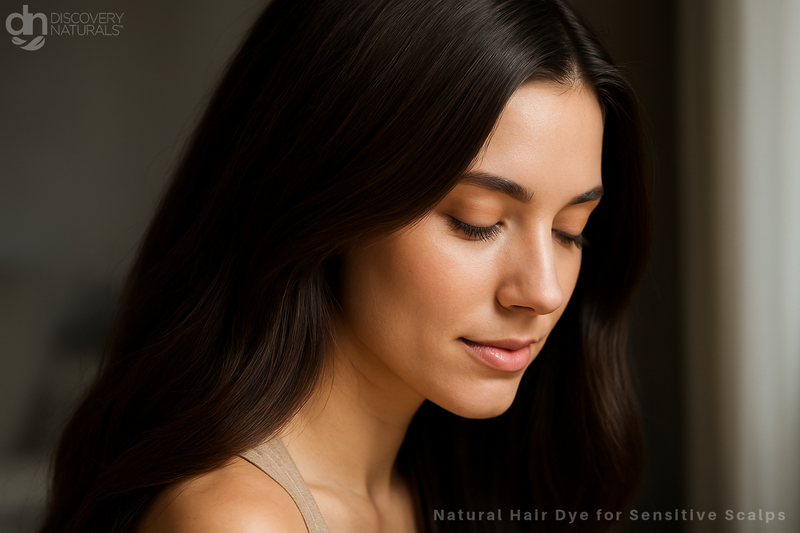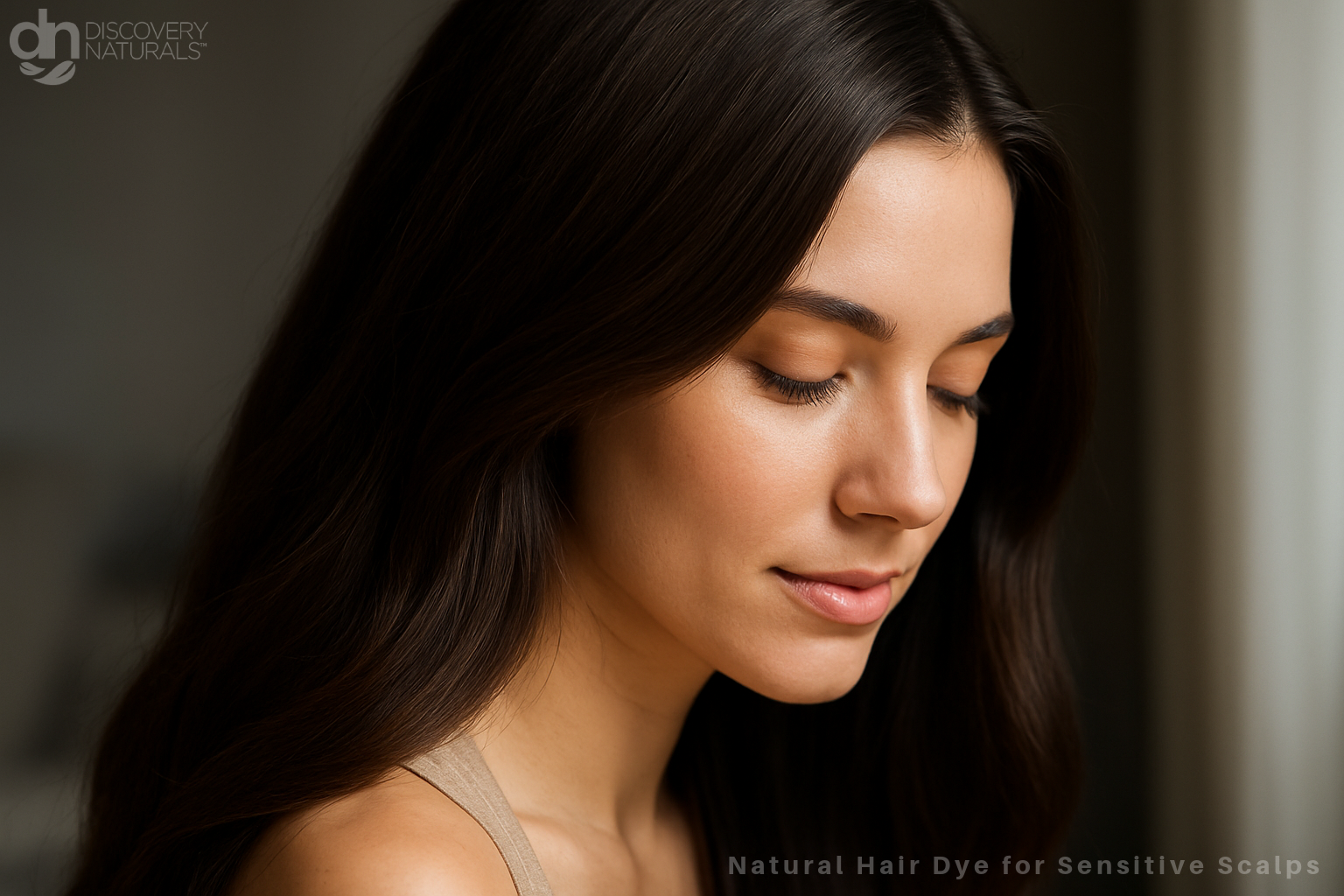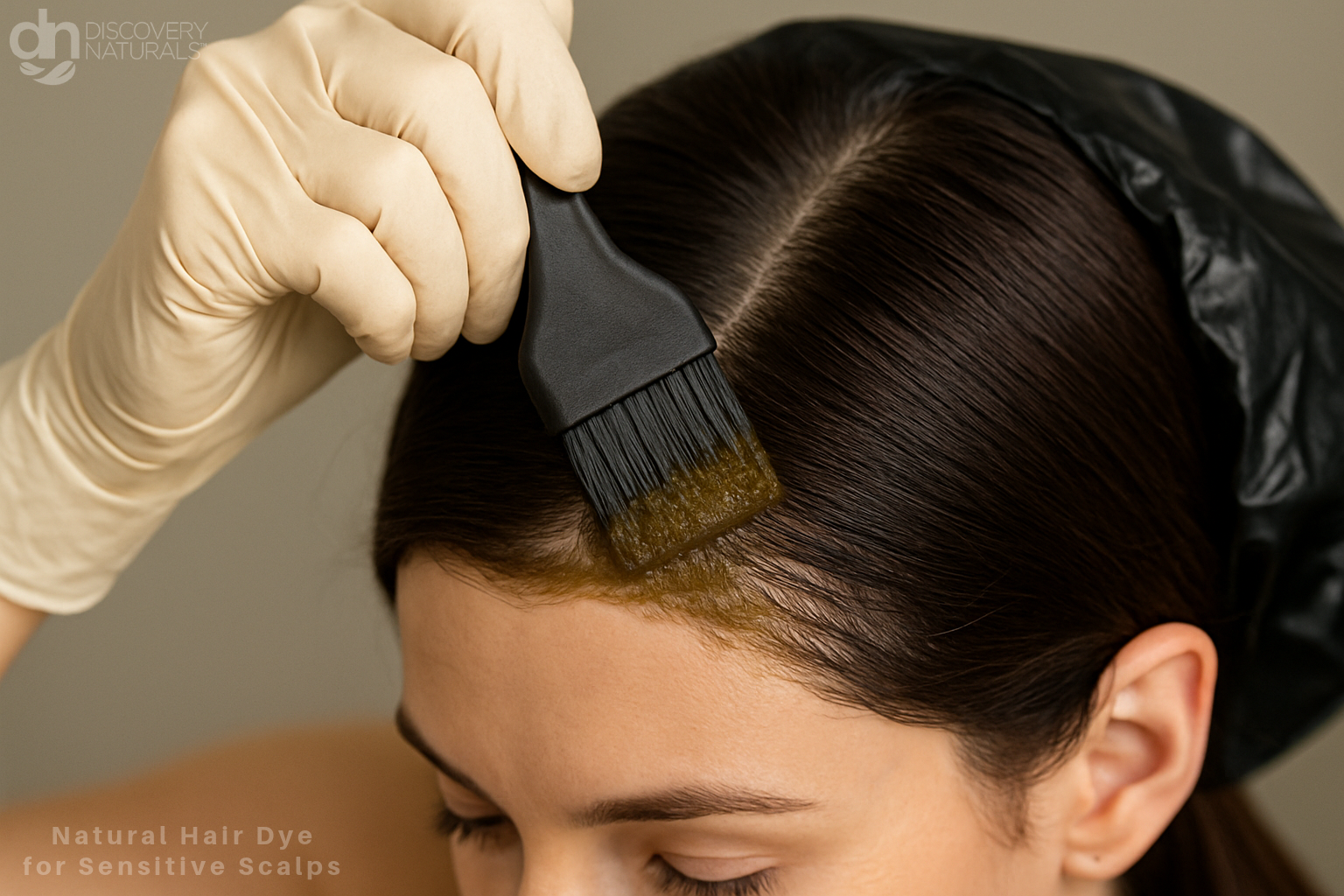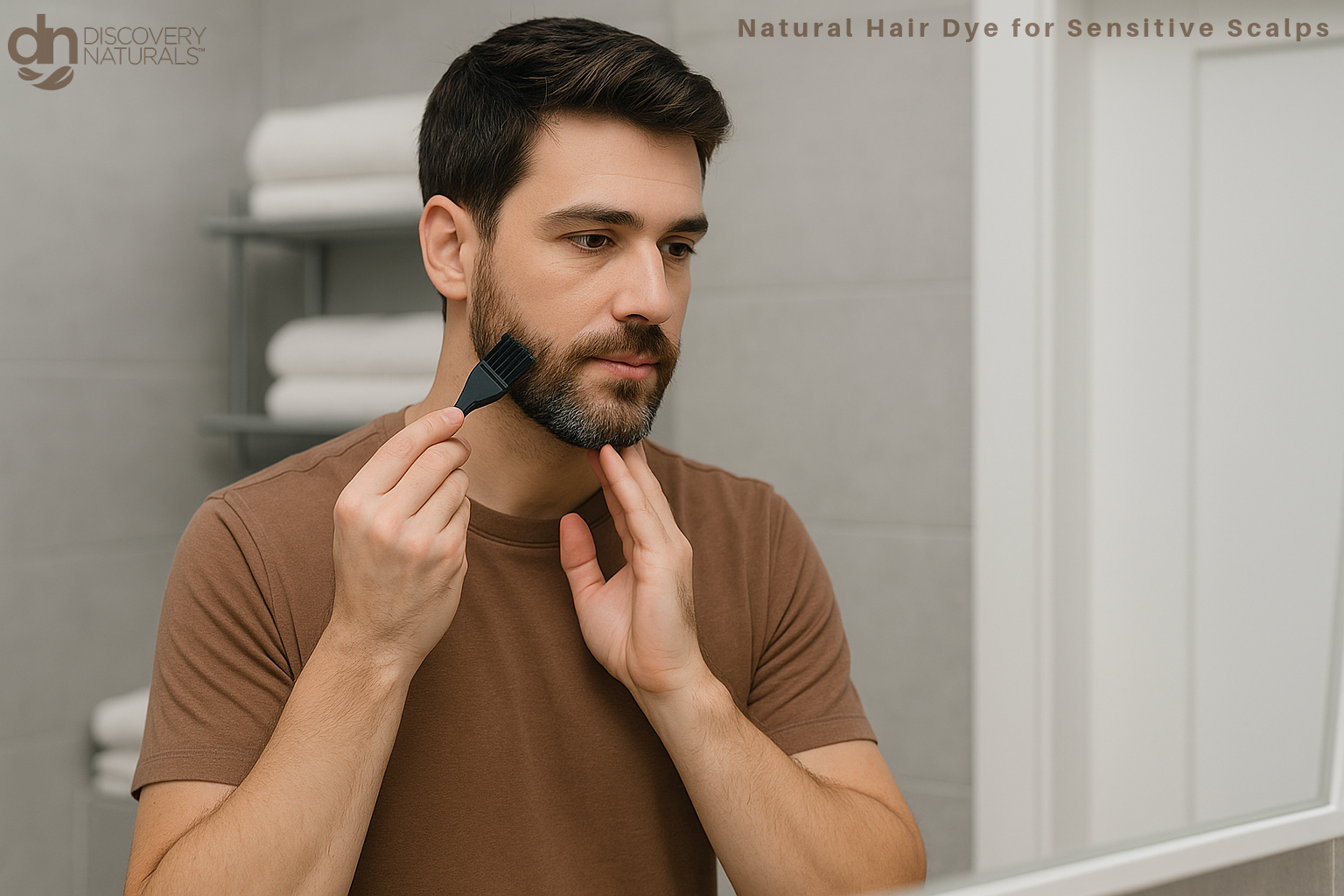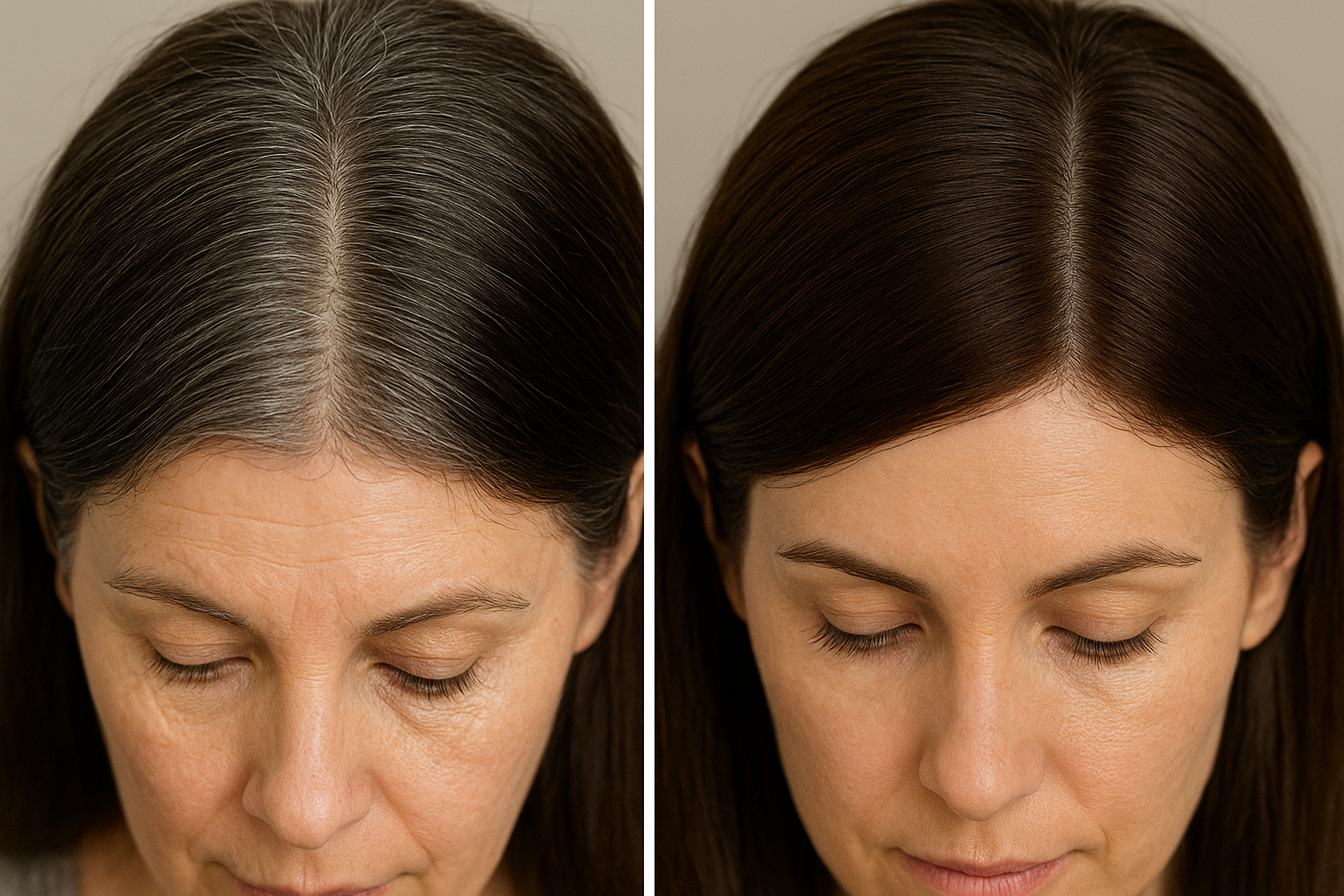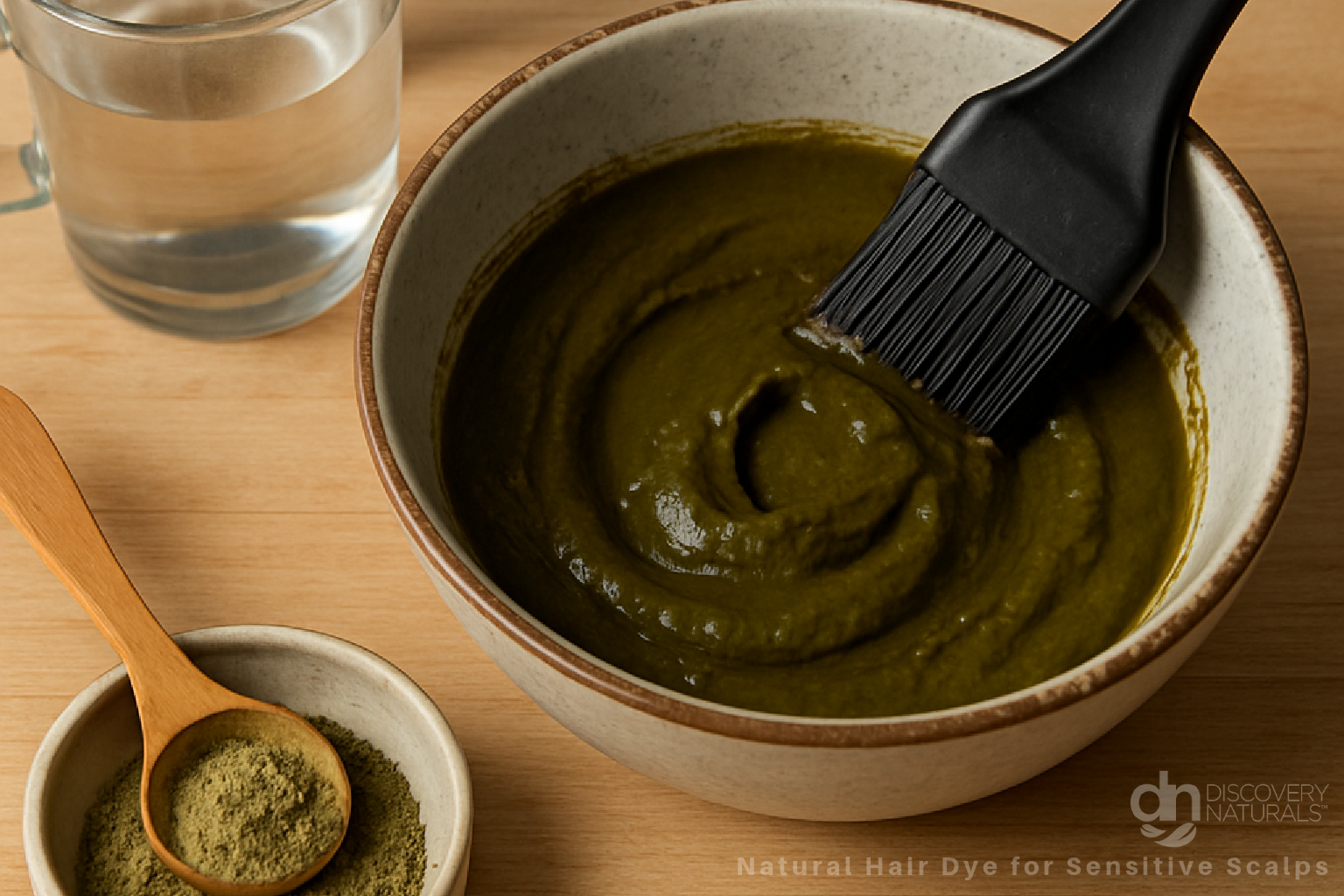Gentle, Rich Color For Sensitive Scalps
Your scalp matters. If chemical dyes sting or leave you red and itchy, you are not stuck. Plant-based color gives you tone, shine, and coverage without harsh developers. This guide explains how it works, what to choose, and the exact steps to switch with confidence.
Who this helps?
If you react to PPD, ammonia, or heavy fragrance, you will like simple ingredient lists and predictable results. Our herbal shades add gloss over time. Many users notice their hair feels thicker after a few uses.
Why plant-based color works?
Henna, indigo, and cassia are powdered leaves. Mixed with warm water, they form a paste that binds to the cuticle. No peroxide pushes pigment into the cortex. The result is natural-looking color that layers and strengthens with repeat applications.
What to avoid if you are sensitive?
Skip PPD and PTD. Skip high-volume developers. Skip metallic salts that block future coloring. Avoid strong synthetic fragrance. Read labels and patch test before each new shade.
Clean color options
Pure henna creates reds and coppers with shine. See Natural Henna Hair Color.
Indigo blends create browns through soft black. See Brown and Black Herbal Blends.
Cassia gives a clear gloss and golden warmth on light hair. See Hair & Scalp Conditioning.
Quick shade guide
Blonde hair looks great with cassia gloss, light copper, or strawberry tones.
Light to medium brown suits copper brown, chestnut, or medium brown blends.
Dark brown to black shines with dark brown, soft black, or natural black blends.
Covering a high percentage of gray? Use a two-step for the darkest shades.
Men’s section
Prefer shorter processing times and subtle results that look natural at the hairline and beard? See hair dye for men here. Learn about quick root touch-ups, sideburn blending, beard tint guidelines, and shade picks that avoid harsh chemicals.
Prep
Do a 48-hour patch test. Clarify to remove oils and buildup. Dry your hair. Protect your hairline with a thin layer of balm or oil. For full details, link to your How to Use Henna guide.
How to apply: single step
Mix powder with warm distilled water to a yogurt texture. Let henna blends rest 20 to 30 minutes for dye release. Section hair into four to six parts. Apply root to tip with a tint brush. Saturation matters. Cover with a cap and keep warm. Process 60 to 120 minutes for depth, then rinse with water only. Wait 24 hours before shampoo.
Two-step for darkest browns and black
Step 1: Apply pure henna for 60 to 90 minutes. Rinse.
Step 2: Apply indigo or your dark blend for 45 to 60 minutes. Rinse.
Link this section to your two-step tutorial.
Gray coverage tips
Start at the roots and work in small sections. Load extra paste on resistant areas. Add 15 to 30 minutes if needed. Refresh roots at three to four weeks to keep the line crisp.
Aftercare
Wait 24 to 48 hours before shampoo so the color sets. Use a gentle, sulfate-free cleanser. Add a weekly gloss with cassia or a small amount of your original shade. Before swimming, pre-oil or use a cap and rinse after.
Common mistakes to avoid
Washing too soon. Using hot tools right away. Mixing in metal bowls or with hard water. Applying over heavy oils or styling residue. If your water is hard, mix with distilled water.
Ingredients you will see
Lawsonia inermis leaf powder henna. Indigofera tinctoria leaf powder indigo. Cassia obovata leaf powder. Optional botanicals like amla or hibiscus for tone and slip. No PPD. No ammonia.
Safety and patch testing
Mix a teaspoon of paste. Apply to the inner elbow. Leave for 45 minutes. Rinse and watch for 48 hours. No reaction? Proceed with a strand test before a full head.
FAQs
Will natural dye cover gray?
Yes, with proper saturation. Reds cover in one step. For deep brown or black on high gray, use the two-step method.
How long does it last?
Roots grow out in 4 to 6 weeks. Length holds longer because color layers. Plan quick root touch-ups.
Is it safe after a PPD reaction?
Our herbal dyes exclude PPD and ammonia. Always patch test. Check the INCI on the product page.
Will my hair feel dry?
Most users report more shine and a thicker feel. After the 24 to 48 hour set period, condition lightly.
Can I switch from chemical dye today?
Yes, if no metallic salts remain. Clarify, strand test, then apply. If you used metallic salts in the past, wait or consult us.
Will this work on dark hair?
Yes. Expect tone and shine with a single step. Use two-step for deep brown or black.
Ready for gentle color that respects your scalp? Pick your shade in the Natural Henna Hair Color collection. New here? Start with a strand test. Want help? Message us for a free shade match.

